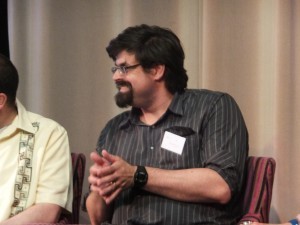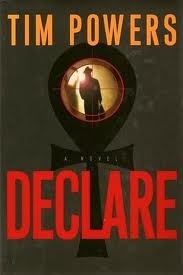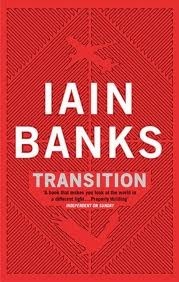Adrian Tchaikovsky's Blog, page 16
September 11, 2013
Feast and Famine is now out!
(Usual apologies about the delay, excuses re being busy with writing etc. etc. etc. Seriously, I've had the line edits in for Seal of the Worm, on a murderous deadline, so it's all true. But I should blog more, I know).
Anyway, we rejoin our irregular viewing with a piece of blatant and shameless self-promotion! My very first short story collection, Feast and Famine, is now out from Newcon Press. The hardback will be available shortly (limited to 125 signed copies), andthe e-book is available now for a very reasonable price indeed. You can get it at Spacewitch right there. It has also had some rather cracking reviews which you can see at Sci-Fi London, SFFWorld and Shores of Night.
Share this
August 12, 2013
Nine Worlds Geekfest and the Week of Geek 2014
So, that was Geekfest, a large-scale convention that came out of nowhere around the beginning of the year, funded itself via Kickstarter, occupied a large chunk of two big hotels at Heathrow and had a mind-bogglingly bewildering variety of panels, lectures, games and activities for fans of just about all tastes. And it was, frankly, wonderful. I had a fantastic time, met a lot of old friends and made a few new ones, did some panels, sat in on some superb science talks (1) and was even a contestant on genre Just a Minute hosted (as always) by Mr Paul Cornell (2).
With most conventions you find there are far too many panels you want to go to, and can't fit in. With Nine Worlds that went double and triple, and after that there were a whole load of panels that weren't particularly my thing, but that were each catering for strong and specific fan bases — academic studies on Harry Potter, Brony rap, cosplay creation, all kinds of incredibly varied topics, and each with their audience.
And although I heard of the odd glitch and problem here and there, everything I saw was working seamlessly. There were no serious technical issues that I know if, the panels all started on time, everything was signposted, and the support material was excellent. I will confess that the one thing I was expecting to be creaky was the logistics side of it, and I was frankly gobsmacked at just how smooth it was. Everyone involved should be bursting with pride.
If you didn't make it along, I'd recommend next year's to anyone — because there will be plenty there for you, pretty much no matter what — and if you think there won't be, just suggest something. However, there's a scheduling issue for next year. Nine Worlds 2014 is happening on the 8th-10th August of that year, and the following weekend (well, from the Thursday really I think) is Loncon 3, the World Science Fiction Convention 2014. There's obviously a danger there that the smaller and newer convention will lose out if punters are thinking, "Well, I can't do two on consecutive weekends…"
Or… you can, surely. Because that week in between, given that both cons will be in London, has the potential to be basically London WEEK of GEEK. Especially for people travelling some distance, surely there's a grand chance to come for one con, stay the week and then go to the next. I assume this is the logic that the organisers are working on, and there's a grand opportunity for anything else a la geek in the London area to join in. Let's have some genre theatre (and I'm still smarting I missed a play of Halo Jones here in Leeds, so, you know…), let's get Jeff Wayne in for a special performance of War of the Worlds. Let's have a London-wide zombie survival game and scare the crap out of the Home Office. Maybe not that last one, but there must be a ton of stuff that could take advantage of a week of captive genre fans roaming the London streets.
(1) Highlights included Drs Ian Stewart and Jack Cohen, authors of "What Would a Martian Look Like" and similar books, and also (with Sir Terry) the Science of the Discworld series.
(2) I came second. I was robbed.
Share this
August 1, 2013
Hordes of the Things
 I did that last post too soon, didn't I? Because each of the following is also a Thing that I should report, namely:
I did that last post too soon, didn't I? Because each of the following is also a Thing that I should report, namely:
I have been interviewed by London Calling, and that is a Thing that you can find here. There's a good picture of me with the Invisible Man, before we went our separate ways.
Simultaneously (how do I manage it? Amazing!) I have been interviewed by Civilian Reader here where, instead of my ugly mug you can see Alan Brooks' glorious cover for the Air War without the text to mar it.
I've also got a couple of short stories in the pipeline - there's a SF piece, which I unabashedly called "Charlie's Ant", in the Newcon Press Looking Landwards anthology, the theme of which is the future of agriculture. I have immense fun writing this story and, like all the very best ones, just basically turned up full formed in a single day.
Another story that came out extremely well is "Fragile Creations", which will be out very soon in the Tales of Eve anthology from Fox Spirit. I can say nothing about that one save that it is unusually vicious for me, and was extremely satisfying to write. The anthology theme is women creating their perfect partners.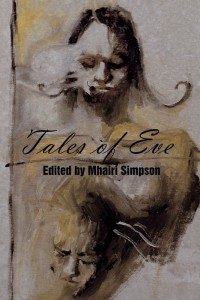
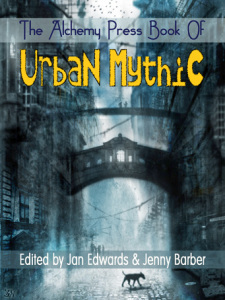 "Family Business", a rare piece of urban fantasy from me (using the definition of "modern day fantasy" rather than "fantasy in a city", the latter of which seems to have lost out in the classification war. Although it is also in a city, viz. London) will be out in Alchemy Press's Urban Mythic, to be launched at the World Fantasy Convention later this year. This is the piece I read at last year's Fantasycon, if anyone recalls it.
"Family Business", a rare piece of urban fantasy from me (using the definition of "modern day fantasy" rather than "fantasy in a city", the latter of which seems to have lost out in the classification war. Although it is also in a city, viz. London) will be out in Alchemy Press's Urban Mythic, to be launched at the World Fantasy Convention later this year. This is the piece I read at last year's Fantasycon, if anyone recalls it.
Finally, Newcon are unveiling a collection of stories in the vein of, and in honour of, the late, great David Gemmell, which I suspect is called Legends or close to that, and this will feature a brand new Shadows of the Apt story entitled "Sword and Circle", which is to say Weaponmasters Gemmell-stylee.
And Aethernet issue 5 is now available from Amazon, and if you're not reading it, why not?
Share this
July 31, 2013
Destination August
Just a brief post to give my schedule for the doings on 8th August and for Geekfest.
On 8th August I'm signing at the Milton Keynes Waterstones (Unit 72, Midsummer Place, Midsummer Blvd, Milton Keynes) at 2pm.
After that I will be doing hopefully a reading, a Q&A and signing at Leadenhall Market Waterstones (2–3 Whittington Avenue, Leadenhall Market, London, EC3V 1PJ) at 6.30pm
Nine Worlds Geekfest runs from 9th to 11th and my schedule is:
Heroes & Villains panel/debate, 10am Saturday 10th
Signing at the Forbidden Planet stall, 12-1pm Saturday
Life Beyond Westeros panel, 5pm Saturday
What Makes a Fandom, 9am (God help me) Sunday 11th (in this case probably, "What Makes a Fandom get up for 9am on the Sunday of a con weekend", the answer being given to the lonely empty room being "absolutely nothing").
Additionally, London Calling is currently running a competition to win an entire set of the books, in case anyone had a 3-legged table they needed to prop up.
Oh, and Feast and Famine, my short story collection, is now available to pre-order on Spacewitch and Amazon.
Share this
July 17, 2013
Colonising new habitats
First of all, and God protect and preserve me, but I am now on Twitter @aptshadow . Please boost my following if you're a fellow sufferer. I may occasionally say something amusing, or at least make snarky comments on things other people have said (1).
Secondly, and far more excitingly…
The Adrian Tchaikovsky Short Story Collection is coming!
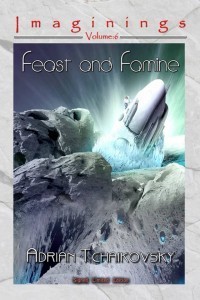 Who knows, perhaps the first of many. Or at least several. Let's stay optimistic. This collection in the Newcon Press Imaginings series has a whole bundle of my short work, some of which has been seen elsewhere, some of which is just crawling into the light of day for the first time, blinking at the sun and wondering if this whole evolution lark is seriously worth it.
Who knows, perhaps the first of many. Or at least several. Let's stay optimistic. This collection in the Newcon Press Imaginings series has a whole bundle of my short work, some of which has been seen elsewhere, some of which is just crawling into the light of day for the first time, blinking at the sun and wondering if this whole evolution lark is seriously worth it.
This collection includes:
Feast and Famine (published in Solaris Rising 2), Good Taste (Now I Lay Me Down to Reap), The Dissipation Club (Dead But Dreaming 2) along with the Shadows of the Apt story, The Sun of the Morning (Deathray magazine) and The Artificial Man (originally published in the long-defunct Xenos mag, and one of my first published pieces from years back). Plus, never before seen (though sometimes read) stories, Care (about looking after ageing parents in unusual circumstances), 2144 and All That (the unexpected sporting opportunities of time travel), Rapture (When Religion attacks), The God Shark (pretty much what it says on the tin) and one of my all time personal favourite pieces of writing, the Beagle-esque The Roar of the Crowd. Not to play the salesman too much, but as well as hopefully being just the thing for anyone who likes my writing, if you happen to have a friend who's interested, but is a little intimidated by a 10 book series, this seems like a grand starting point, doesn't it?
The volume will be available in a limited edition run of hardbacks, and also in e-book form, and it will be available direct from Newcon (probably the most conscientious way to obtain it) and also on Amazon and the usual outlets. Current wisdom suggests it will be out mid-August, i.e. not quite in time for Nine Worlds, which is annoying.
I'll post a more targetted link to the Newcon site as soon as they bring up the book there. And while you're over there, you should check out some of their other books, all good stuff.
(1) In the ecosystem of the conversationalists I am, frankly, a scavenger. Or possibly a parasite.
Share this
July 14, 2013
My Experience of Edge Lit 2 : A Pictorial Guide
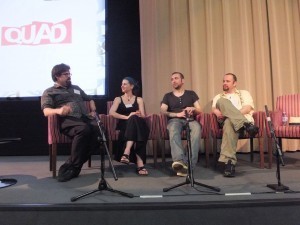 1. I am aghast at your suggestion! Aghast!(1)
1. I am aghast at your suggestion! Aghast!(1)
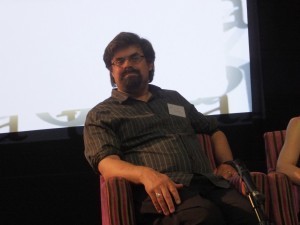 2. About to deploy wrist-mounted blaster cannon / interviewed by a Dalek
2. About to deploy wrist-mounted blaster cannon / interviewed by a Dalek
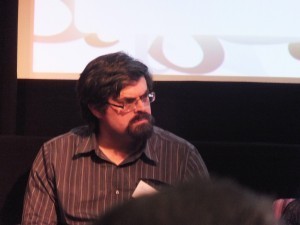 4. I disagree with what you say and shall destroy you later.
4. I disagree with what you say and shall destroy you later.
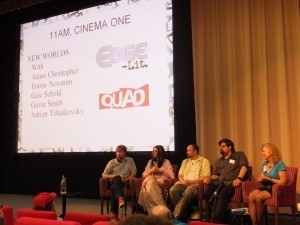 5. "With a look of pensive meaning / as of ducks that die in tempests" (2)
5. "With a look of pensive meaning / as of ducks that die in tempests" (2)
 7. With friends (the gap in the middle is where Stalin was sitting before I redacted him) (3)
7. With friends (the gap in the middle is where Stalin was sitting before I redacted him) (3)
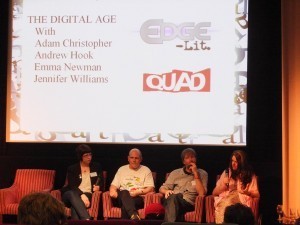 8. And this is one where Stalin got to me first.
8. And this is one where Stalin got to me first.
With thanks to my wife Annie for the pictures.
(1) Iain Banks memorial panel with Tricia Sullivan, Tom Fletcher and Gavin Smith
(2) from Hiawatha's Photographing by Lewis Carroll, but then you knew that.
(3) With Gav Thorpe, Peter Newman, Jen Willians, Lou Morgan, Adam Christopher and Emma Newman.
Share this
July 2, 2013
Rare Sightings of the Greater Eyebrowed Author.
I have some dates coming up that I'd like to share with you.
Firstly, and inconveniently just before the new book, I'm at Edge Lit doing various panels & c. in Derby on Saturday the 13th July.
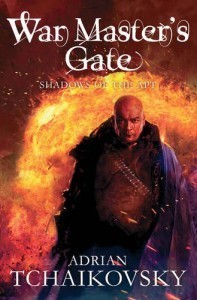 After that, War Master's Gate is well and truly released into the wild on the 1st August (and, from experience, anything up to two weeks beforehand, as things tend to just hit the shelves as soon as they hit the stockroom unless there's some serious reason not).
After that, War Master's Gate is well and truly released into the wild on the 1st August (and, from experience, anything up to two weeks beforehand, as things tend to just hit the shelves as soon as they hit the stockroom unless there's some serious reason not).
On the 8th of August, which is slightly awkwardly a Thursday, I am doing something of a Little Tour, in that I will be hitting the Waterstones at Milton Keynes at 2pm, and thereafter at the London Leadenhall Market Waterstones at I think 6–6.30. At both of these events I will be reading something (probably something out of the new book, let's face it, although I always prefer reading complete short stories myself), then answering questions, and then signing stuff. So if you have a lore question to stump me with, this is your big chance.
On or around the same date I should at least be signing stock at Forbidden Planet in London, so that's a good place to get hold of a signed book. I think you can mail order them from there as well.
From 9th-11th August it's Nine Worlds Geekfest at which I am also doing Stuff, although I fully expect to be completely eclipsed by the enormous amount of awesome that appears to be scheduled for it. Feel free to grab me at any time when I'm not actually on a panel to talk, signings, or to buy me a drink. Buy me enough drinks and I'll sign anyone's book with any name you like.
scheduled for it. Feel free to grab me at any time when I'm not actually on a panel to talk, signings, or to buy me a drink. Buy me enough drinks and I'll sign anyone's book with any name you like.
And there's the World Fantasy Convention in Brighton in November, but enough time for that later.
I also have several short stories coming up, and indeed some rather special short story news. Which I am currently forbidden to tell in case it turns out to be bunkum. So that's a bit of an announcement fail.
Share this
June 13, 2013
Pushing Boundaries
Apropos of absolutely nothing, a post about how to jump the checkpoints of genre with such elegance that the border guards don’t even have time to get their guns out.
Genre distinctions are one of those evergreen topics for convention panels, and the eventual consensus tends to be that no, they don’t mean anything, but yes, they do mean something, so a sort of score draw for all sides.
However, like a lot of apparently iron divisions, the closer you get, the fuzzier they look, until what was a wall to challenge Heaven and Earth becomes a rather muddy no-man’s land. Here are a few hardy travellers that have crossed and recrossed that embattled terrain.
The Dying Earth series – Jack Vance
Jack Vance, who died only this May, has for a long time been one of the most highly-regarded fantasy and science fiction authors going, and The Dying Earth stories (really three separate sets of stories with very different feels but a common setting) are some of the best-loved seminal fantasy stories. Or possibly science fiction stories. The point is that the SF/fantasy barrier, that from the point of view, say, of an insect-themed epic fantasy author can seem impenetrable, is totally permeable. Back in the old pulp days, all sorts of elements of horror, SF and fantasy were jumbled together rather like Stephen J Gould imagines physical characteristics might have been in the Pre-Cambrian(1). In the Dying Earth books, Vance’s treatment is that of a fantasy author, but the ancient and decaying world he describes is plainly a post-scientific one, and the magic may simply be sufficiently advanced technology that people use but no longer understand(2). Vance’s influence can be seen in later writers such as Gene Wolf (the various Sun series) and Mark Charan Newton's Legends of the Red Sun, and in the original Dungeons and Dragons game. As an indication of the high esteem that Vance is held in, have a look at the anthology Songs of the Dying Earth from Harper Voyager — it's quite a roll call. (3)
Tim Powers is a singular writer, a master of detailed research who crafts fantasy/horror plots to fit, for the most part, an established historical setting, pulling off the trick with such accomplished skill that one genuinely starts to get twitchy at the plausibility of it all. His fictions, terrifying as they are, tend to explain the established facts more convincingly than reality. With Declare, my favourite of his books, he presents a sharp spy thriller, crammed full of historical verisimilitude and painstakingly researched spycraft, which just happens to involve the story of human contact with a race of elemental Jinn.
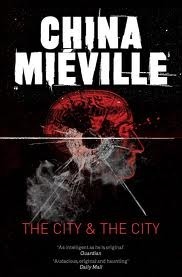 The City and the City – China Mieville
The City and the City – China Mieville
I’ve made no secret of my admiration for Mr M, and he’s very much a writer of the littoral, whose work lies in exploring and blurring boundaries. His own work ranges freely across the literary canon, but against strong competition I think The City and the City is my favourite, a bizarre police procedural set in two cities that co-exist uneasily side by side but intermingled: two distinct cultures whose territories are scattered and dotted through a single city, and who are forbidden from noticing or interacting with each other. It’s a weird trick, but he pulls it off with his usual aplomb.
The Shining Girls – Lauren Beukes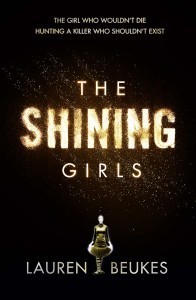
A new offering from the author of Zoo City (another great favourite of mine), Ms Beukes’s latest is a crime novel, the story of a serial killer who targets a series of girls who just happen to live in a selection of different time periods. In my local bookshop it was out on the crime shelves, but it’s a time travel story as much as anything else – unclassifiable, and undeniably effective no matter how (or whether) you try and categorise it.
I don’t need to talk about the great loss to the genre inherent in the recent death of Mr Banks. He has been one of our strongest voices, one of our best ambassadors, and a man who quite consciously stood over genre conventions like a colossus. He was respected for his SF novels, both the Culture series and a number of stand-alone works (for the record, my favourites are Feersum Endjinn and The Algebraist), and also for a string of ostensibly non-genre novels, including the astonishing (and highly disturbing) The Wasp Factory. Transitions was published under Iain Banks (no M), therefore nominally a ‘mainstream’ book, and it is at the same time a social critique of modern society and its excesses, and also a story of world-jumping assassins and their feuding ideologies.
(1) See his Wonderful Life.
(2) One of the interesting thoughts in THIS POST, past all the Mermaids stuff, is that as our technology grows appreciably more like magic, in that it does what we want at our whim, without us having the faintest idea how, we re-enter the realms of credulity and superstition. The divine between the gadgets and the science grows and grows until it’s magic wands and magic words and how many people know how an iPad works, anyway?
(3) And they didn't ask me! Seriously, if anyone else is planning a Dying Earth anthology give me a shout, I so have a story for you  .
.
Share this
May 11, 2013
The Prince
Wow, er… Eastercon was over a month ago, eh?
Well, back in the land of the blogging, sorry for the gap. My main excuse is that I've been too busy writing to update here. Seriously, it has been quite crazy. I've had a buttload (1) of short story opportunities to follow up, some of which gave me rather more trouble than I was expecting. I've had the new series rattling along (halfway through the first book, working title The Tiger and the Wolf.) I've had my episodes for Spiderlight, my Aethernet serial (episode 2 out now!), and I've recently had a Super Secret Project Zeta that I've just burned through in the last handful of days (codename: "Die In Flames" because it's so unlikely to go anywhee, but hey…)
So, er, Eastercon… Bit late for a blow by blow, although I encourage you to check out Emma Newman's review in the current SFX, if only because it has a big old picture of me and the Aethernet crew there. However, what I was going to start on, like, the minute I got back from the con, was a series of posts based on the panels I did there and what came out of it.
Taking the last man first, then, revolutionary fantasy.
This followed some of the lines in my Tor blog post here: monarchies and fantasy, how inseparable are they, why do we keep coming back to them?
I've done my fourpence-worth in the above blog, and anyone whose read Shadows of the Apt knows I'm no blind monarchist. Juliet McKenna, who was moderator, is another staunch revolutionary, with a full scale people's revolution in her fantasy series. And perhaps we'd like to think that nobody is really doing the "company of princes" fantasy, where every member of the adventuring party is quite literally royalty. Or almost everyone. After all, whilst each worthy from dwarf up in the Fellowship of the Ring is an actual honest to Maia prince, except for Aragorn, who's, y'know, the actual king, at least the hobbits are proletariat. Or, OK, no, maybe three of them are gadabout dilettante gentry, but, come on, Sam is a prole, and he's a whole one ninth of the Fellowship. If you don't count Bill the Pony (2). But Tolkien was playing off the old romances and myth cycles where, yes, basically if you were a hero, you were probably a prince, because apparently princes simply had nothing else to do but go on quests and the like. Of course, those old romances had a select and blue-blooded audience who needed to be properly buttered if the author was to get his bread. Tolkien, old Dr T the scholar's scholar, was following a form. A lot of other people then trampled madly down the same track.
The implications are actually offensive, when you think about it. It absolutely does tie into the Divine Right of Kings and all that horrible, horrible feudal stuff. The majority of heroes are princes (not even nobles, often, but actual heirs to the throne of Spoonfedia) because there is inherent in a prince the makings of a hero, whereas the vast majority of the common herd lack this seed of greatness, and can only be victims, to be butchered by the black hats or protected by the white. They have no agency in the story. The peasantry as a whole is the close cousin of that miserable trope, the damsel in distress: a thing to be fought over and won.
The other prince plot, of course, is the winning of the inheritance, where the stable boy turns out to be the rightful heir. Again, it's divine right. Usually things have gone to wrack and ruin because the wrong person is sitting on the throne. Because there is a "right" person, ordained by bloodline — a happenstance of genetics — and it matters. OK, yes, the wrong person is usually also evil, and the right person is virtuous, but I'd submit to the court, your honour, that in such circumstances the evil and the illegitimacy are inseparable, as are the right to rule and the goodness. And, for the love of reason, just look at any history book not manifestly written by the winners, and tell me what percentage of actual monarchs were in any way good people. Even the best of them did terrible, terrible things just because they could — just because they were the king. That's the automatic territory that comes with princedom — not heroism, but a sociopathic heedlessness for those outside your little circle of nobs.
But we've put it behind us, haven't we? That lapdog slavish need for our heroes to be born with a gold crown in their mouths? Look at Abercrombie, who gives us a feudal nation ruled by a king, and takes us behind the scenes to show us what a sham it all is, and how the strings are being pulled by everyone from wizards to bank managers. Erikson's Malazan series deals with hierarchies far vaster than any mortal bloodline, and seldom gives a damn about divine right, save where the right-holder is actually divine. Gemmel never cared much about heredity — his strong-man heroes were almost always the low who fought their way to note or to notoriety. And yet…
A Song of Ice and Fire was mentioned approvingly in the panel as something else that put the monarchs in their place. After all,here's a series (like Abercrombie's) shorn of many overly virtuous characters, and we see that every lord, every would-be king, is deeply flawed. A perfect example. Except… afterwards, thinking back, is it? Or is Games of Thrones actually a very clever and detailed handling of exactly that "divine right" plotline. Because (and spoilers for book 1 from hereon in, by the way) the land is going to crap, and at the same time the king on the throne, Joffrey the Rightfully Detested, is not the rightful king — he's illegitimate and the product of incest. There's no suggestion that the long winter wasn't coming anyway, but the ruin that the Seven Kingdoms have fallen into — reminiscent of the Mort d'Arthur endgame from Mallory — is inextricably linked with the rightness of the arse on the throne (3). In that series, though, Martin is doing what the traditional tale wouldn't: showing us his working — the machinations, ambitions, rivalries and petty intrigues that actually turn the personal tragedy of a bad king into the global tragedy of a very bad period of history.
(1) I think you'll find this is the proper collective noun.
(2) Who is probably a prince among ponies.
(3) in both senses.
Share this
April 23, 2013
Mind the Gap
It's silly season again with writing commissions — too many anthologies I want to submit to, plus the new series, plus my Aethernet piece, hence the dearth of blog posts. Normal service to be resumed as soon as possible,
Share this

